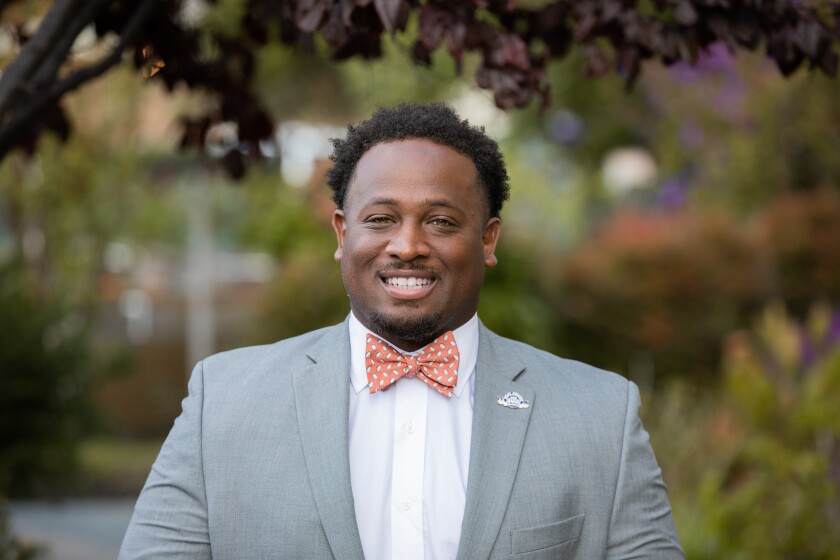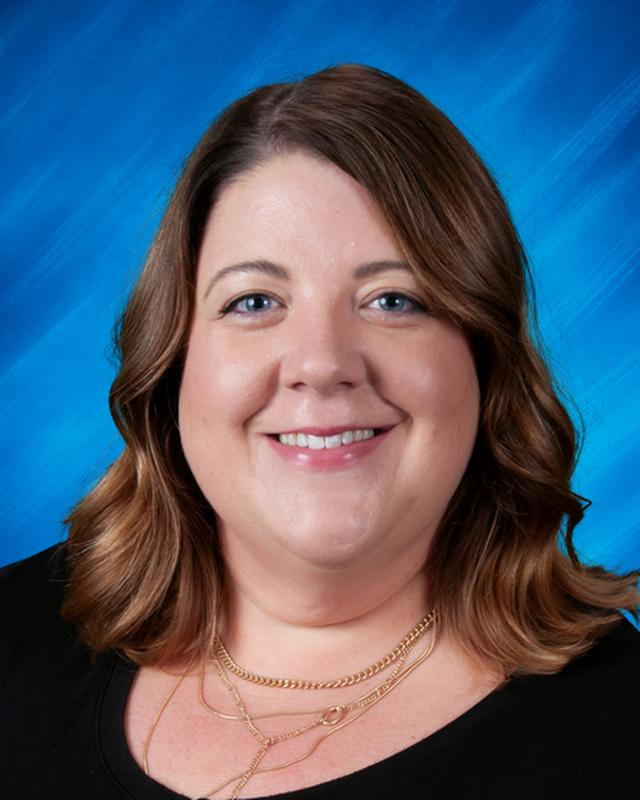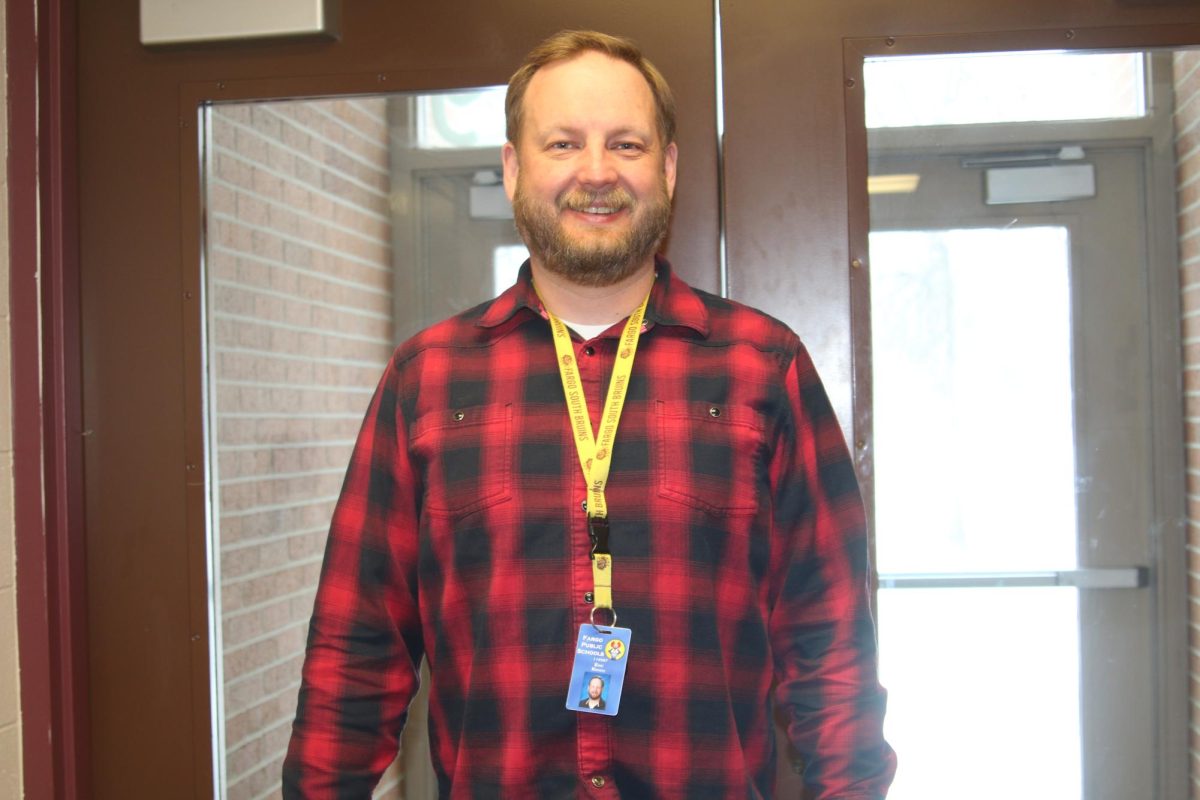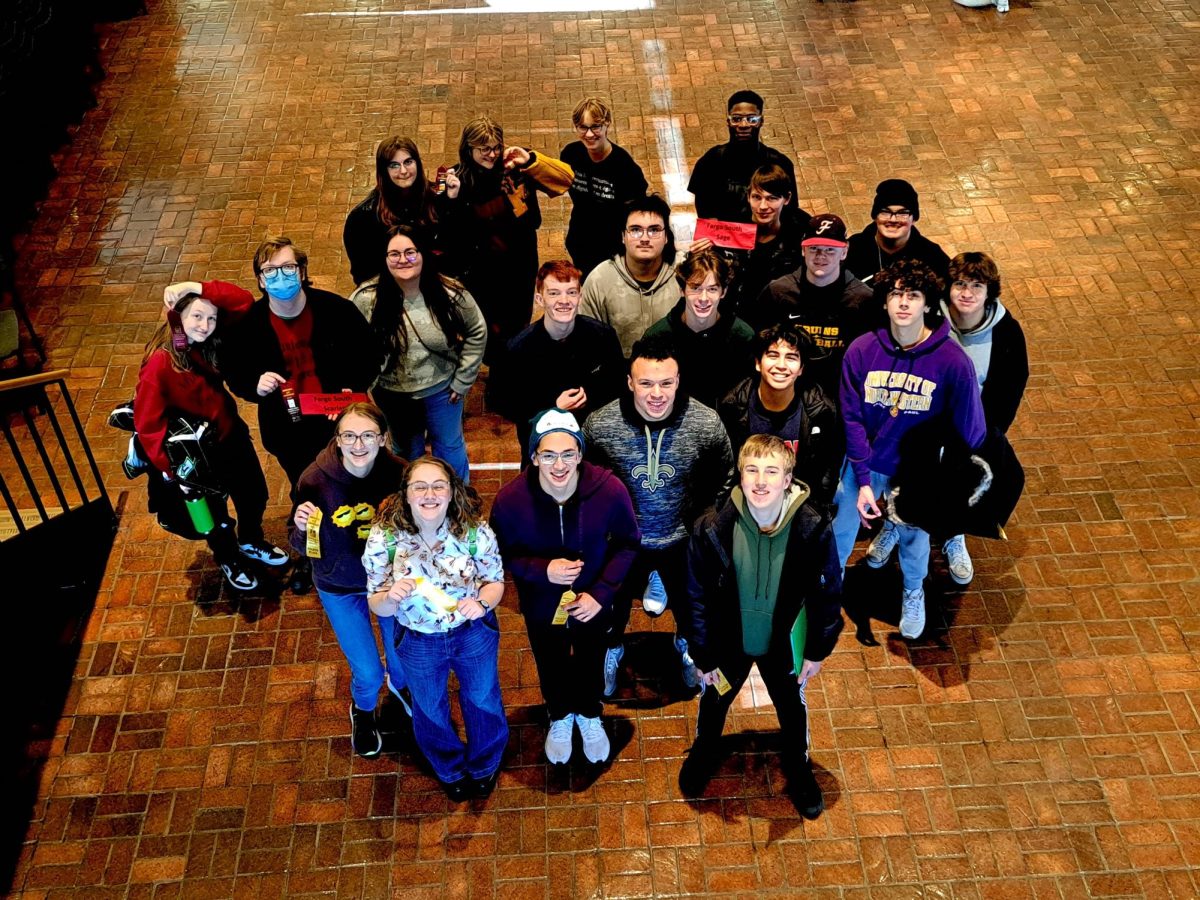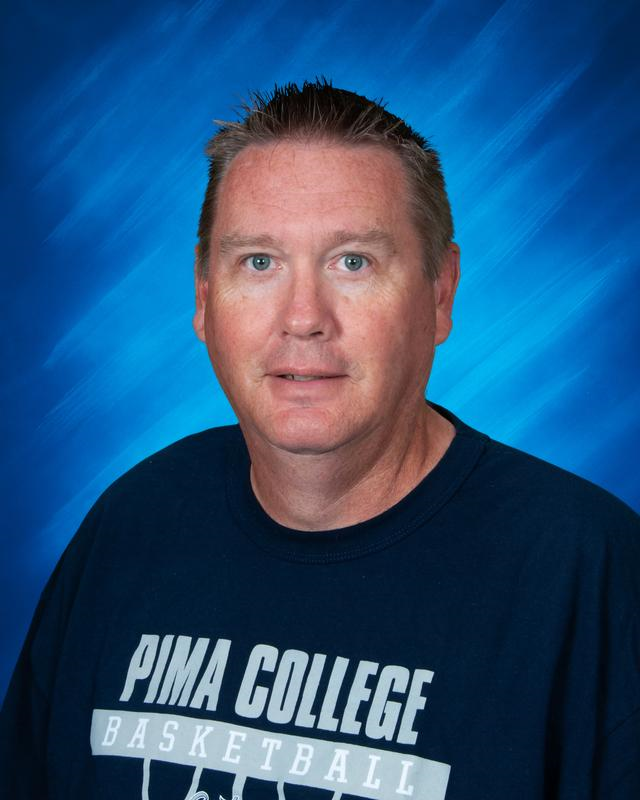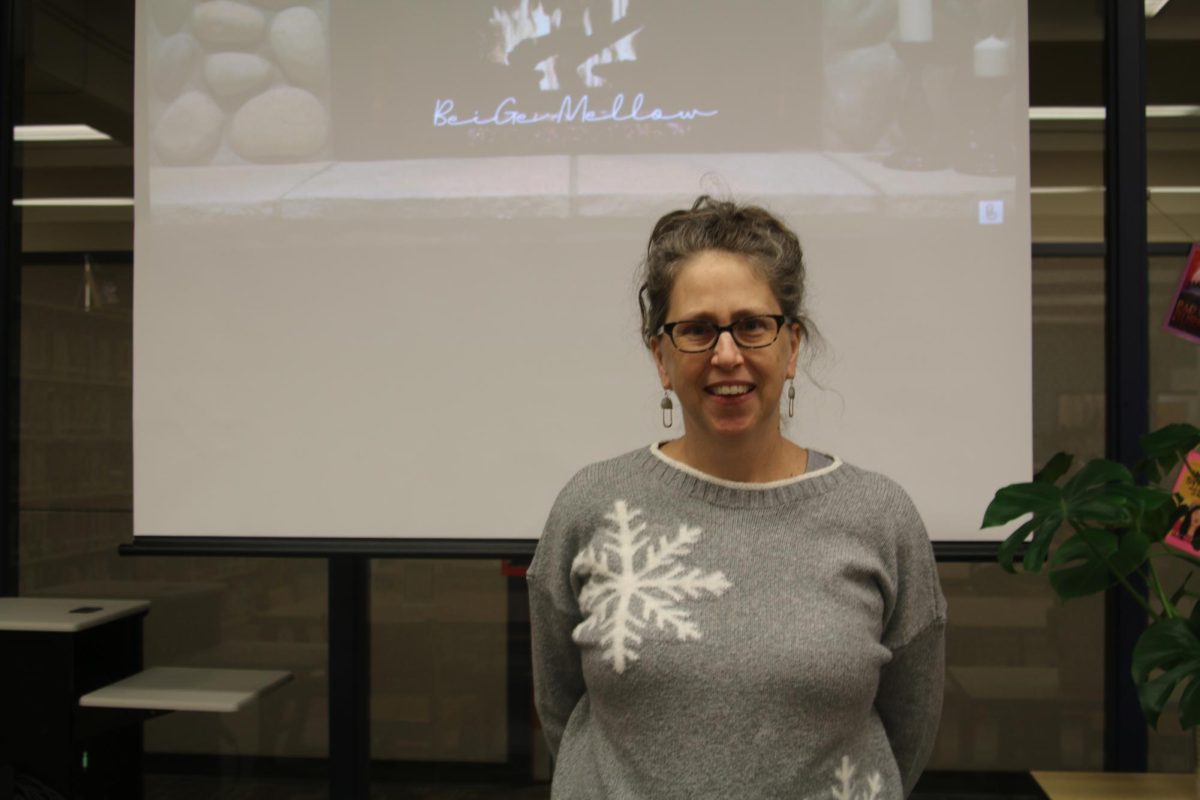Tristan Love recently arrived at Fargo Public Schools as the new Director of Educational Justice for Fargo Public Schools. I sat down with him to talk about his new role, his background, and issues in FPS.
Devyn: “Can you tell me a little about your background?”
“I am from Houston Texas, born and raised. In high school I almost dropped out because of life factors and the stuff I was involved with outside of school. So basically, my in was, there was this one science class where I performed really well in, and she was the hardest teacher in the building, her name was Ms. Johnson, and basically she said, I was too smart for her class and recommended me to go to Pre-AP. I got interested in science, and basically I ended up going to college, and initially I was a computer science major, but then I always had a knack for biology and the life sciences, since that particular class, and so I went to a college that is a historical black college (HBCU), and it’s in East Texas, and in that college I graduated cum laude with a degree in biology and a minor in chemistry.”
After graduating, Love’s career path took a turn.
“Typically if you’re gonna do pre-med while you’re prepping for your m-cat, a lot of people take a gap year to prep and get higher scores to get into the med school of their choice, and I thought I would teach while prepping for the m-cat, but then I fell in love with teaching and the students because they resemble myself, and that was my intro to education. That was in 2013 and so ten years I’ve been in education.”
Devyn: “What does your job as Director of Educational Justice look like right now?”
“Starting off, it involved a lot of policy changes. Revising discipline policy, revising different policies that could inhibit student success. The district had already identified these policies that needed to be updated, and when I came in, it was like fertile ground to be able to look at policy and use my experience from working with other school districts to be able to change those policies.”
Love has a particular interest with graduation rates.
“A big part of my job is working with school psychologists, working with school counselors, and every school-based mental health person. I have a counterpart. Her name is Dr. Jen Sarge, and she’s the assistant director of educational justice. We oversee school-based mental health professionals. We’re looking for inequities in our discipline practices, inequities in our attendance, and even in our grading; basically everything affecting graduation rates.”
The Department of Educational Justice has an analytical process when it comes to problem-solving.
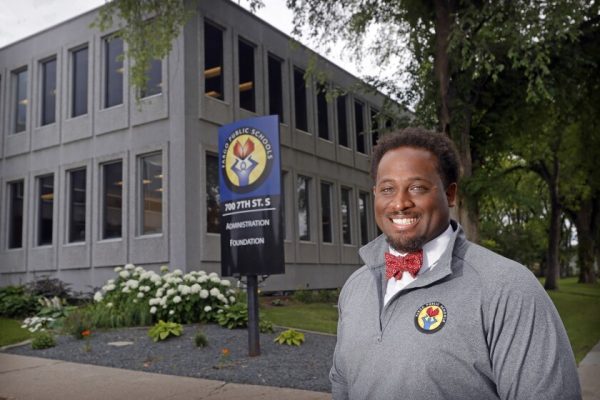
“When we see those inequities then we investigate. We find out South’s graduation rate is 83%, and the state’s graduation rate is 84%. The question the Educational Justice Department comes in and asks is, “Why are we one point below the state average?” Then, we start looking at students: why aren’t students graduating, what courses are students failing at the highest rate, and why? It’s really using the scientific method: looking at a problem, making a hypothesis on how to solve the problem, testing what we could better as a district to solve the problem, and then waiting for the results to see if its working and reevaluating. “Did it work? Great. Why did it work?” or if not, “Why didn’t it work, and what do we need to adjust?”
When I asked Love what Educational Justice meant to him, he took a very humanistic approach.
“I think it’s very subjective, and I think that’s what educational justice is, it’s not looking as all students as a population, but looking at each [student]. It’s recognizing that educational justice is when the individual feels like they have all the tools and resources to be able to function and become whatever definition of success they’ve defined for themselves, and making sure the school system is providing those opportunities for that individual student to become whatever they set out for themselves. It is a very subjective title – I get the opportunity to look at educational justice at a high level, in terms of barriers, but I also get a chance to talk to those students who the system is not currently working for on the individual level and figure out how we can get that student educational justice.”
Devyn: “What are some challenges you see in FPS in reaching educational justice?”
“Because educational justice is pretty subjective, because it can depend on the individual, what you would need is student voice, you would need administrative voice, teacher voice, and parent voice. For me one of the biggest barriers coming in was that there was no voice, there was nothing that was given recently that I could look at and say “this is what students want, this is what parents want, this is what staff want.” That’s why this month we have the student survey out, we have the parent survey out, we have the staff survey out. That survey is very comprehensive intentionally, because in order to make the changes we need as a department, I can sit in the district office and assume what students want, or I can go to this survey, and it talks about safety and belongingness, and I can say “2000 kids answered this survey, of the 2000, 15% feel like they don’t belong in our schools” and that’s a different lens to come from then just assuming that students don’t feel like they belong.
Devyn: “Do you see any problems with advocating for equity issues in a state like ND which has legislators who have been trying to legislate against certain justice issues?”
“Yeah, I think that every state is responsible for its own educational system, and the conflict comes when the state is responsible and there are political motives that are intertwined, this is how you get a politicized educational system, and I don’t agree with that, and I don’t go on either side of the aisle, I’m just about what’s right for kids, and so it’s really tough to navigate the system when the educational system becomes politicized. From what I’m hearing, kids don’t look at this as a political system. I really try to remove [the political aspect] and just focus on the needs of the kids, and I think that’s why the voice is so important.”
Love also noted that individual school districts could focus on what’s best for students.
“It is hard working with a state that has its own political agenda and motives, but then how does the district silence the noise, and make sure we’re just focusing on the needs of the kids? I know in Fargo, it’s a little more liberal or different than other places in North Dakota, and I think each independent school district has the opportunity to make sure we’re following all the rules and regulations of the state but we have a chance to be a buffer, to kinda silence some of that noise. I think that’s part of my goal, is just to make sure that we’re sticking to what students need.”
Devyn: Aside from the challenges, what strengths do you see in our district in terms of seeking educational justice?
Love: “The student body is just remarkable. A lot of good kids doing a lot of good work that want to go to the next level, and want to use an education for its intended purposes. They’re just good spirited people.”
Devyn: “What do you think your role with high schoolers will be?”
Love: “At high schools, I’ve been looking at graduation rates, I’ve been looking at Choice Ready, and trying to answer the question: “Are all students having the opportunity to be Choice Ready, and if not, what’s the barrier?” And then looking at right now we have some data on graduation rates, and I’ll also start to look at how many of our students are going off to college, how many of our students are going into military, how many of our students are going off into the workforce. And so looking at those different percentages, and making sure that once kids cross the stage, students have solidified their plans for post-secondary, and making sure the school is supporting that post-secondary readiness.”
In addition to graduation rates, Love is also focused on credit recovery.
“I’m really intrigued with credit recovery – making sure kids that potentially failed a class have an equitable opportunity to regain credit, and so at the high school level we’re talking more and more about how can we make our credit recovery program more robust so more students can walk across the stage, and not just be dependent on like an online Ingenuity-type of credit recovery system. If I failed a class as a student, and then I have to sit through a computer-based program. That might not be the best thing for me. It’s not for everyone, so right now I’m looking at data to see if we have a large failure rate for certain classes, and maybe ingenuity is not the fix. Maybe we need to make a more robust credit recovery program.”
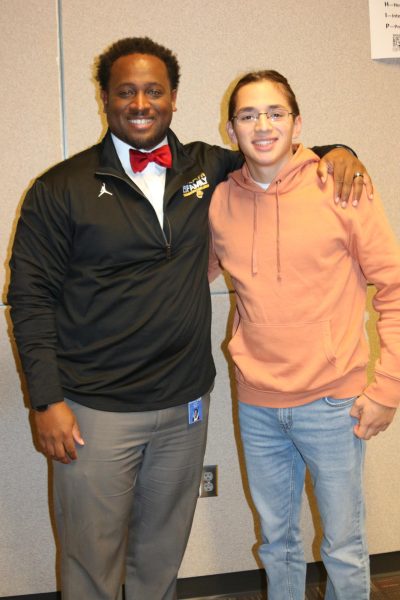
Devyn: “Recently, school boundaries were changed, and some families came to school board meetings protesting that their kids had to go to South. Obviously South is a perfectly good school, so what do you think should be done about South’s reputation?”
“I think that’s why voice is so important. When you have a certain subset of people that are saying this school is bad, this is not a fit for my child, which could be valid, but you aren’t able generalize the whole school because of your personal preference. The reality is that you can go to a private school, and a private school may not be a fit for your child, but does that mean it’s a bad school: no. And so I think that’s one thing. In my opinion, this is why being able to ask parents about their experience here is important. It’s one thing to have 25 parents that say: “blah blah blah, it’s not a good school, it’s not a fit, it’s wrong.” That’s all you’re hearing. You’re not hearing from the parents that are saying “no, actually South is great. South has done great for my kid.” I was in a meeting last week where a parent was like “the teachers here, the coaches here have been phenomenal.” But what outlet does that parent have to broadcast that positivity about the school? That’s why you need a survey.”
Devyn: “We lack BIPOC teachers at South, how do you think that affects our students, given that 33% are students of color?”
“Significantly. I think kids gotta see themselves represented in the staff. And I’ll just be real with you. Coming here, I found out that teachers have to come to work on Martin Luther King’s day, I almost dipped just because of that. Just because that lets me know that the cultural awareness of people of color and their connection with Dr. King, you clearly don’t understand the significance that he had and the civil rights movement, when people are made to come to work on a federal holiday that’s celebrating the life and legacy of Dr. Martin Luther King. Just off of that, how are we gonna recruit a black teacher here and tell a black teacher that: “not only are you coming to be a minority, but when you come, we don’t celebrate you.” We were here at school on indigenous peoples’ day. That’s a message that you send out to those communities. Why would someone of color want to work here? And then you don’t have anybody. Literally, you have 0.
Devyn: “So how do we change that?”
“It takes someone saying: “Nah y’all, Fargo is good, we’re making shifts to be able recruit people in.” Being here, in terms of parents and community, I’ve had nothing but positive experiences. Hopefully when we start recruiting teachers, then I can be able to motivate people of color, people of diverse backgrounds, people of diverse experiences, to come and work with our district, in a capacity of teacher, administrator, and principal (roles), because our kids need to see it. It impacts them greatly.
Love also emphasized white teachers not limiting themselves.
“My mentor is an older white lady. She’s a white woman, we don’t have no commonalities in terms of cultural background whatsoever, but she really was trying to help me go to school and graduate. Sometimes what I’ve experienced in our district is that our adults are limiting themselves. “Just because I’m not black, just because I’m not Latino, I can’t connect.” That mindset within itself is a limiting factor. A lot of times as educators sometimes we’re saying the Latinos, the Black kids, the Native Americans, they can only get that kind of support from somebody who looks like them, and I think that’s a fallacy. Really, what we want, is someone who generally cares.”
Devyn: “In my experience at South, college-prep classes seem segregated, with % of BIPOC students not reflecting our student population. How do you think the school and district should work to change this?”
“It takes an adult in the building, that realizes the injustice, or realizes the segregation, and realizes you do have kids that are capable. If there’s tracts that are typically followed that lead kids to be able to be in higher-performing classes, we have to start at the genesis of the tract. And think about, are we preparing kids maybe even in middle school to be able to get to high school and potentially get to those classes. Or are we filling their schedule with an intervention class, or a class that’s not prepping them, and we’re just missing the students. When you get to high school, it’s more of a symptomatic problem, sometimes going all the way back to middle school, and we have to address that.”
Devyn: “On a lighter note, what’s your favorite part of the job so far?”
“October, I finally got a chance to go to schools, and do duty like I’m an assistant principal or principal. One of the times I came here, I just stood out in the hallways during passing periods and talked to kids. I’ve been able to go to the gym and watch y’alls basketball team play basketball. The highlight of the job, since this is my first district office job, is being in the midst of kids. The flexibility to go to the office and do the office work, but also then come to school and chill out and work with the staff.”


